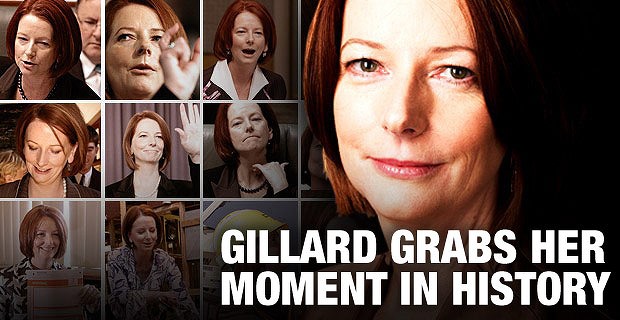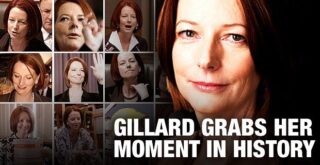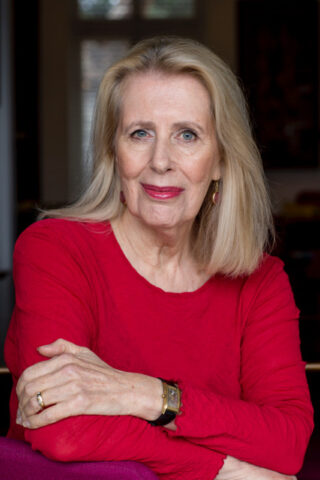- Entry type: Person
- Entry ID: AWE0232
Summers, Anne Fairhurst
- AO
- Birth name Cooper, Ann Fairhurst

- Born 12 March 1945, Deniliquin, New South Wales, Australia
- Occupation Author, Columnist, Feminist, Historian, Journalist, Political activist, Political scientist, Print journalist, Public speaker, Publisher
Summary
Pioneering Australian feminist Dr Anne Summers AO is a best-selling author and journalist with a long career in politics, the media, business and the non-government sector in Australia, Europe and the United States. Anne is a leader of the generation and the movement that has improved women’s rights in Australia. Her first book Damned Whores and God’s Police changed the way Australia viewed women. Her contribution has earned her community respect: she has received five honorary doctorates and in 1989 became an Officer of the Order of Australia (AO) for service to journalism and women’s affairs. She won a Walkley Award for journalism in the same year.
Summers is a former editor of Good Weekend who regularly writes an opinion column for the Sydney Morning Herald and The Age. She was a founder of the important feminist journal, Refractory Girl, in the 1970s.
Details
Anne Summers was born in Deniliquin, New South Wales on 12 March 1945, the first of six children of Eileen Frances Hogan and Austin Henry Fairhurst Cooper, a navigation officer with the Royal Australian Air Force during World War 2. As a baby, she moved with her parents, strict Catholics, to Adelaide, South Australia where she later attended the local convent and then Cabra Dominican College. While former politician and Age and Disability Discrimination Commissioner the Hon. Susan Ryan AO and academic and writer Dr Germaine Greer, who both attended Catholic schools, said nuns were their first examples of strong independent women, Anne said few of the Dominicans she knew encouraged girls to be strong and independent. ‘The school was run by women but they deferred egregiously to men, and especially to priests’ (Summers, Ducks on the Pond, p. 69).
Family life was difficult because of her father’s alcoholism and violent moods; Anne said in her autobiography that from this she ‘learned to be tough and that was a gift’ (Ducks on the Pond, p. 65). Although she won a Commonwealth Scholarship to attend university, Anne’s desire to leave home and get away from her father led her to Melbourne where her local priest had arranged a job for her at the National Civic Council, B.A. Santamaria’s organisation which aimed to mobilise Catholic unionists against communism. She later moved to a job she loved in an antiquarian bookshop, before returning to Adelaide in 1964 where she worked in the University of Adelaide library and had some formative experiences. With new friend Diana Kenwrick (now Beaton), who felt equally trapped by family and society, Anne discovered Adelaide’s bohemian underground, very different from her suburban upbringing, and met journalists for the first time. Fascinated by their work, she began to imagine being a journalist herself. That year, aged 19, Anne experienced first-hand the vulnerability, trauma and pain of women with unwanted pregnancies when she travelled to Melbourne to have a backyard abortion. The birth control pill was not available to unmarried women and abortion was illegal, so women were exploited financially by a system of power and corruption involving disreputable medical practitioners and corrupt police. As a result, women risked their lives, future reproductive capacity and health. Anne began her studies in politics at the University of Adelaide, still bleeding from the botched abortion. She joined the university’s Australian Labor Party (ALP) Club and was elected president in 1966; the same year she joined Young Labor, becoming an office bearer soon after, and meeting major political figures of the time including Bob Hawke, Don Dunstan, Gough Whitlam, Arthur Calwell, Mick Young and Jim Cairns.
She graduated with a BA (Honours) in Politics. Involved in the movement opposing the Vietnam war, she experienced divisions in her family and wider society because of prevailing polarised views. She became impatient with Labor’s approach and by 1969 her interest was captured by the radical student movement and the evolving women’s liberation movement.
In 1967 Anne married fellow Adelaide University politics student and ALP member John Summers. They moved to the remote Aboriginal community of Musgrave Park (now called Amata) in the far north-west of South Australia where John was an Arts and Crafts Officer. After returning to Adelaide a year later, and working part-time while she continued her degree, Anne found that all the possibilities suggested by the women’s movement were increasingly incompatible with marriage. She left John and moved to Sydney where she began a PhD at the University of New South Wales but transferred a year later to the University of Sydney. During this time, Anne became increasingly aware of the issue of domestic violence and, with a small group, was determined to do something. After reading Erin Pizzey’s Scream Quietly or the Neighbours Will Hear, a book about setting up a refuge in England, the group decided to do the same in Sydney. As a result, Elsie Women’s Refuge was founded.
During her postgraduate years in Sydney, Anne’s encounter with the left-wing, intellectual Sydney Push widened her political views. In 1971, she became active in Women’s Liberation in Sydney and in 1972 she co-founded the women’s studies journal Refractory Girl. In 1975, her best-selling book Damned Whores and God’s Police: The Colonisation of Women in Australia was published; in 1979 the University awarded her a PhD for this work. Anne had felt driven to write something that helped Australian women understand themselves better by placing the emerging critique of women’s inferior position in society within a specifically Australian historical and social context. She had been influenced by an essay by historian Ann Curthoys, ‘Historiography and Women’s Liberation’, in the Marxist journal Arena which had argued: ‘we must find out how the assumptions of female inferiority in public life and subordination in the home have operated in history, and ask why some societies differentiate more than others’. She also wanted to reveal the women who had been ‘hidden from history’.
Published in 1975 in both hard cover and paperback and reprinted three times by the end of 1976, Damned Whores and God’s Police has been reprinted many times since then, selling over 100,000 copies. This bestseller was updated in 1994 and in 2002, and stayed continuously in print until 2008. A new edition was published on International Women’s Day 2016.
Despite the difficulties in her family, family was important to Anne. She was bereft in 1976 when, just a few months after the debut of the book, her youngest brother Jamie died of cancer. In 1999, she dedicated her autobiography to her brothers, David Cooper, Tony Cooper, Greg Cooper and Paul Cooper, saying ‘some of this story is also theirs’, ‘and in memory Jamie Patrick Cooper 1959-1976’.
Academia and the news media took Damned Whores and God’s Police seriously from the outset. The major Australian newspapers chose serious men of letters to review it: Manning Clark in the Australian, Michael Cannon in the Age, J. D. Pringle, its former editor, in the Sydney Morning Herald. Although she had challenged most of these men in the book, without exception they treated it as important and ground-breaking, giving the book status. Ironically the two most dismissive reviews were written by feminists: Jill Roe in the National Review, and former advisor to Prime Minister Gough Whitlam, Elizabeth Reid, who described it in the Bulletin as ‘devastatingly bad’.
After completing her PhD, Anne worked as a journalist on the National Times (1975-78), followed by:
- 1979-83 Political correspondent and Canberra Bureau Chief, Australian Financial Review,
- 1980-83 Canberra correspondent, Far Eastern Economic Review,
- 1983 Australian correspondent, Le Monde,
- 1983-86 First Assistant Secretary, Office of the Status of Women (now Office for Women) when Bob Hawke was Prime Minister,
- 1986-87 US Editor Australian Financial Review; North American manager and editor John Fairfax & Sons Ltd,
- 1989 Editorial Director, Sassy,
- 1987-89 Editor-in-chief, Ms. magazine. In 1987 Fairfax acquired the US landmark feminist magazine, and appointed Anne editor-in-chief. The following year, she and her business partner Sandra Yates bought Ms. and Sassy magazines from Fairfax, after raising US$20 million on Wall Street, in the second women-led management buyout in US corporate history,
- 1990-93 Editor-at-large, Lang Communications Inc.,
- 1992-93 Advisor to Prime Minister Paul Keating,
- 1993-97 Editor, Good Weekend Magazine.
In 1989 Anne was made an Officer in the Order of Australia for her services to journalism and to women.
Anne was chair of the board of Greenpeace International (2000-2006) and Deputy President of Sydney’s Powerhouse Museum (1999-2008).
In 2011, along with three other women, Anne was honoured as an Australian Legend with her image placed on a postage stamp.
In November 2012, she began publishing Anne Summers Reports, a lavish free digital magazine that reported on politics, social issues, art, architecture and other subjects not covered adequately by the mainstream media.
In September 2013 Anne launched her series of Anne Summers Conversations events, with former Prime Minister Julia Gillard in front of a packed Sydney Opera House.
In addition to her classic Damned Whores and God’s Police, Anne has published 7 books: The Misogyny Factor (2013), The Lost Mother: A Story of Art and Love (2009, 2010), On Luck (2009), The End of Equality (2003), Ducks on the Pond: An Autobiography (1999), Gamble for Power (1983) and Her-Story: Australian Women in Print 1788-1975 (with Margaret Bettison, 1980). She writes a regular opinion column for the Sydney Morning Herald.
Anne currently lives in Sydney with Chip Rolley, her partner of almost 30 years, who now has a senior position with PEN America in New York. Anne will join him there in late 2017.
The revision of this entry in 2017 was sponsored by a generous donation from the late Dr Thelma Hunter.
Events
-
1976
Best Newspaper Feature Story, The National Times Sydney
-
1989
Service to journalism and to women’s affairs.
-
2001
Inducted into the Victorian Honour Roll of Women
Archival resources
- National Library of Australia, Manuscript Collection
- Flinders University Library, Special Collections
- National Library of Australia, Oral History and Folklore Collection
- Mitchell and Dixson Libraries Manuscripts Collection
- State Library of New South Wales
Digital resources
Published resources
- Edited Book
-
Article
- The Literary Luncheon Series, http://www.smh.com.au/news/literarylunches/trio.html
- Feminist Fighter, Rayner, Moira, http://home.vicnet.net.au/~abr/FebMarch00/ray.html
- Back to the Future: Urgent Issues for Men and Women of Australia, Summers, Anne, 1997, http://www.actu.org.au/actu-media/archives/1997/back-to-the-future-urgent-issues-for-the-men-and-women-of-australia
- Dangerous remedies: ending the horror of backyard abortions, Summers, Anne, 2012, http://theconversation.com/dangerous-remedies-ending-the-horror-of-backyard-abortions-10472
-
Book
- Damned Whores and God's Police: The Colonization of Women in Australia, Summers, Anne, 1975
- Her Story, Australian Women in Print 1788-1975, Bettison, Margaret and Summers, Anne (compiled by); Roberts, Anne (photography by), 1980
- Gamble for Power: How Bob Hawke beat Malcolm Fraser: the 1983 Federal Election, Summers, Anne; Cook, Patrick (cartoons by), 1983
- Ducks on the Pond: An Autobiography 1945-1976, Summers, Anne, 1999
- A Woman's Place: Women and Politics in Australia, Sawer, Marian and Simms, Marian, 1993
- Australian women writers : a bibliographic guide, Adelaide, Debra, 1988
- Uphill all the way: a documentary history of women in Australia, Daniels, Kay and Murnane, Mary, 1980
- Conference Paper
- Videorecording
- Sound recording
-
Resource Section
- Memorable Summers, Summers, Anne, 1999
- Political Science, Grey, Madeline, 2014, http://www.womenaustralia.info/leaders/biogs/WLE0178b.htm
- Women's Liberation Movement, Magarey, Susan, 2014, http://www.womenaustralia.info/leaders/biogs/WLE0139b.htm
- Public Service/Policy, MacDermott, Kate, 2014, http://www.womenaustralia.info/leaders/biogs/WLE0446b.htm
- Movement against Domestic Violence, Murray, Suellen, 2014, http://www.womenaustralia.info/leaders/biogs/WLE0404b.htm
- Journal Article
-
Newspaper Article
- The operation that made me a criminal, Summers, Anne, 2012, http://www.theage.com.au/national/the-operation-that-made-me-a-criminal-20121102-28pgy.html
- Kay Daniels: writer, historian, scholar and bureaucrat, Summers, Anne, 2001
-
Lecture
- Her Rights at Work: The Political Persecution of Australia's First Female Prime Minister', Summers, Anne, 2012, http://www.annesummers.com.au/speeches/her-rights-at-work-the-political-perseucution-of-australias-first-female-prime-minister/
-
Site Exhibition
- Women Who Caucus: Feminist Political Scientists, 2017, http://womenaustralia.info/exhib/caucus/
- The Women's Pages: Australian Women and Journalism since 1850, Australian Women's Archives Project, 2008, http://www.womenaustralia.info/exhib/cal/cal-home.html
- From Lady Denman to Katy Gallagher: A Century of Women's Contributions to Canberra, Australian Women's Archives Project, 2013, http://www.womenaustralia.info/exhib/ldkg
- The Encyclopedia of Women and Leadership in Twentieth-Century Australia, Smart, Judith and Swain, Shurlee (eds.), 2014, http://www.womenaustralia.info/leaders
-
Resource
- Trove: Summers, Anne (1945-), http://nla.gov.au/nla.party-553824
Related entries
-
Related Women
-
Founded
-
Related Organisations
-
Awarded
-
Awardee
-
Foundation Member
-
Related Concepts

